.
8.11.2015
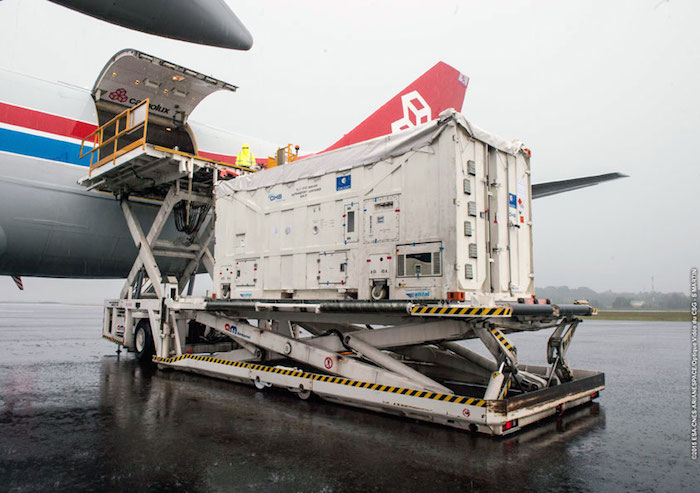
One of the two containers with Galileo satellites for Arianespace’s upcoming Soyuz mission is unloaded from the cargo jetliner after its touchdown at Cayenne’s Félix Eboué Airport.
.
Two Galileo satellites arrive in French Guiana for Arianespace’s year-ending Soyuz mission
.
Soyuz Flight VS13
The satellites for Arianespace’s 12th flight in 2015 – which will close out the company’s record year of launch activity – have arrived in French Guiana with delivery of the latest two European Galileo navigation platforms to be lofted by Soyuz.
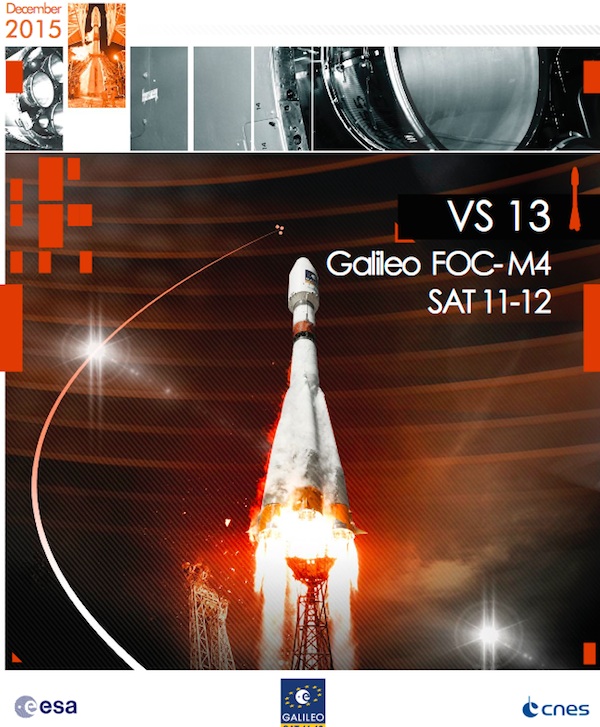
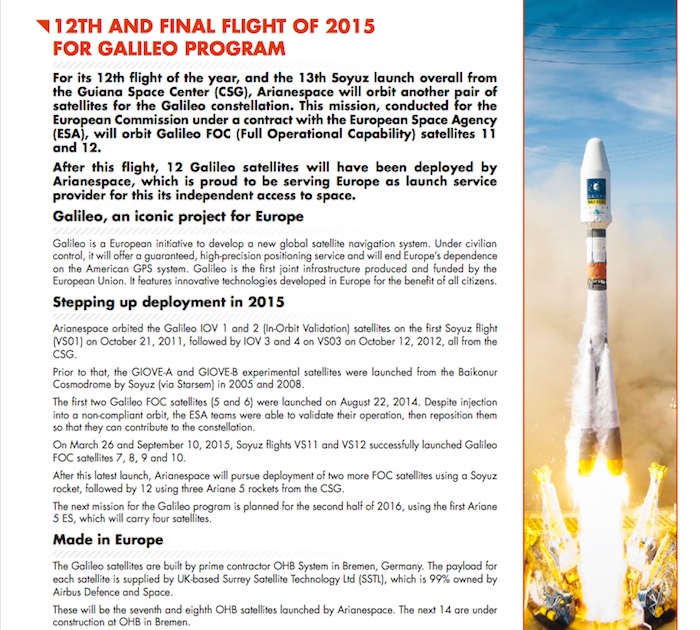
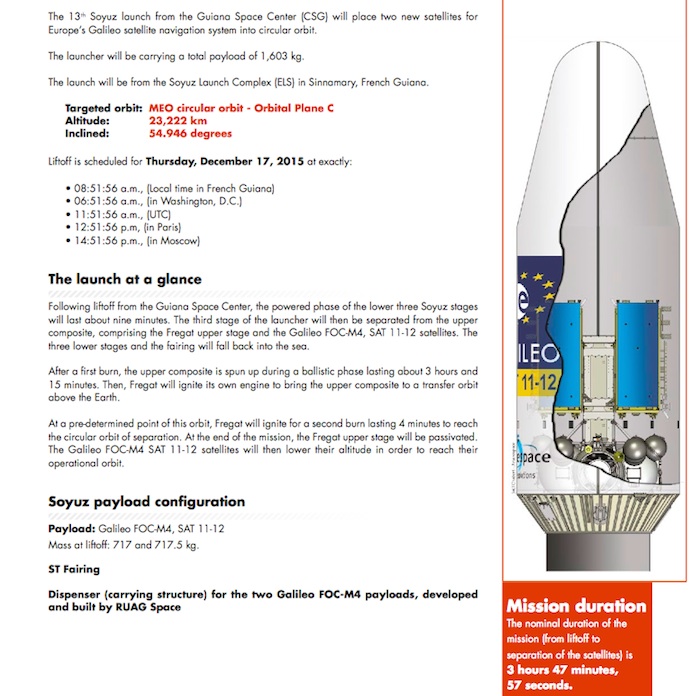
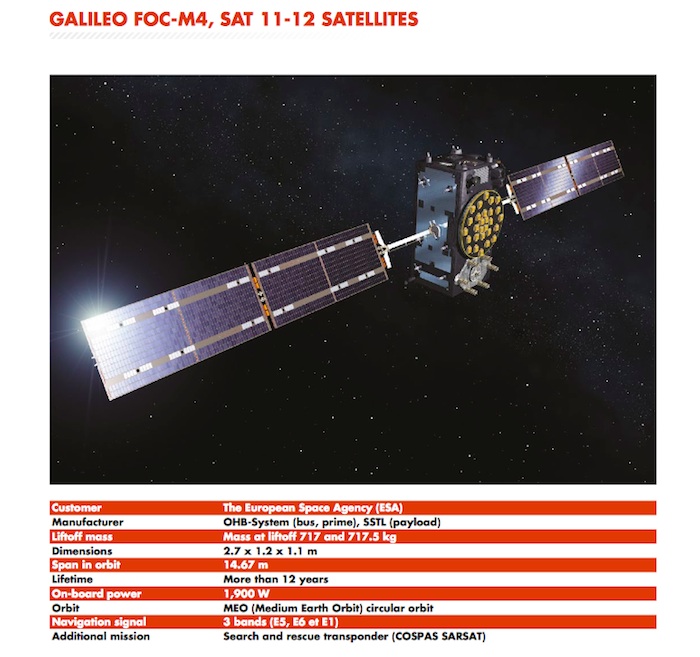
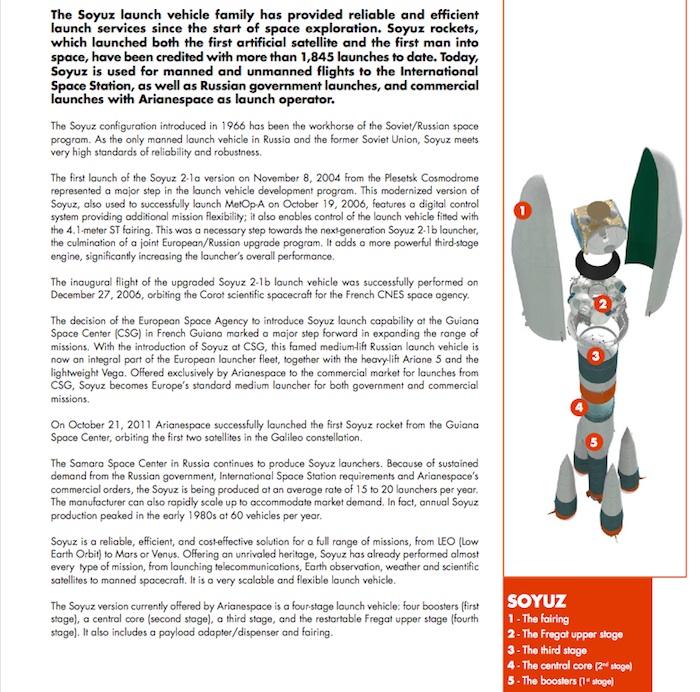
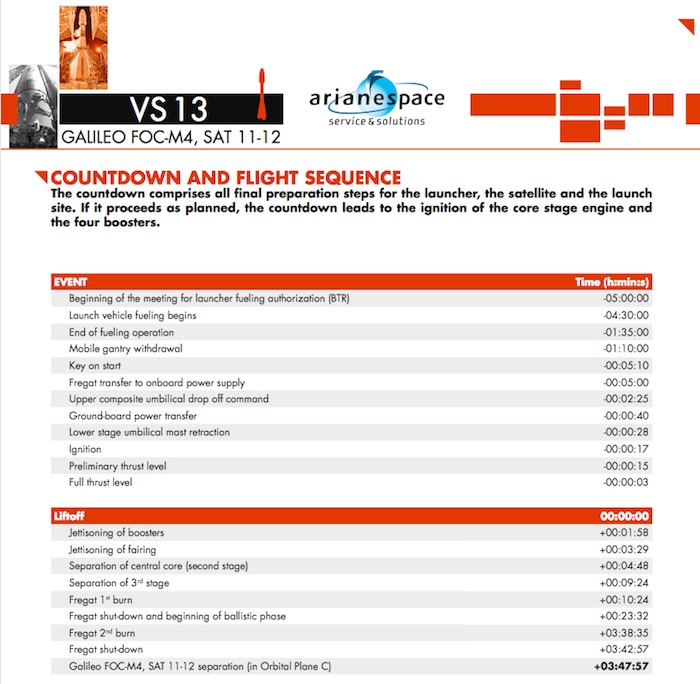
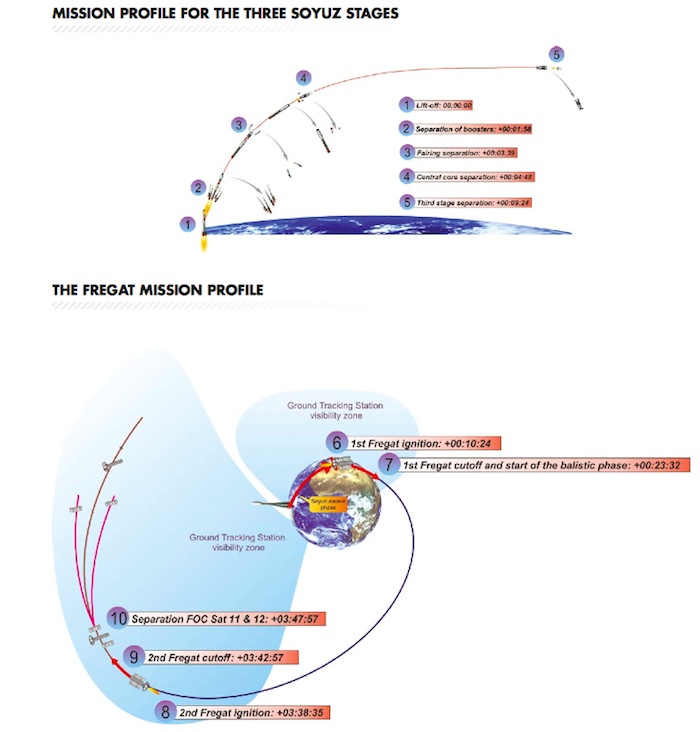
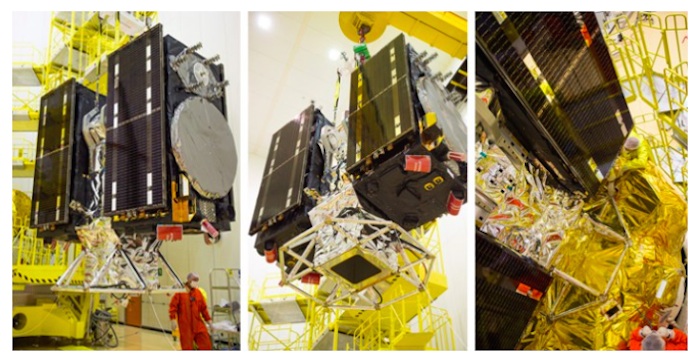
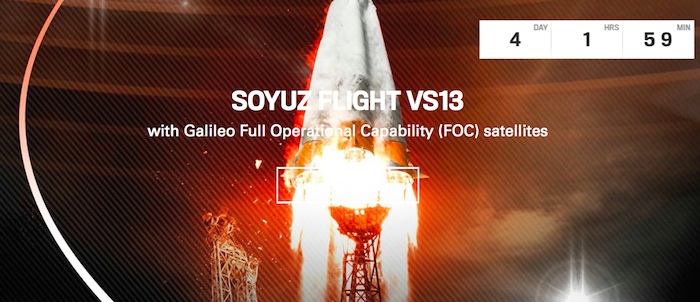
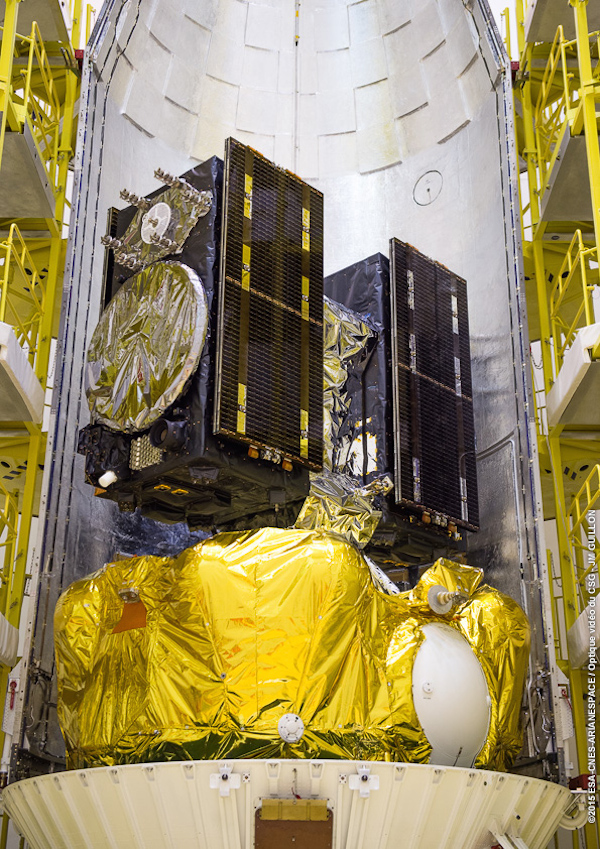
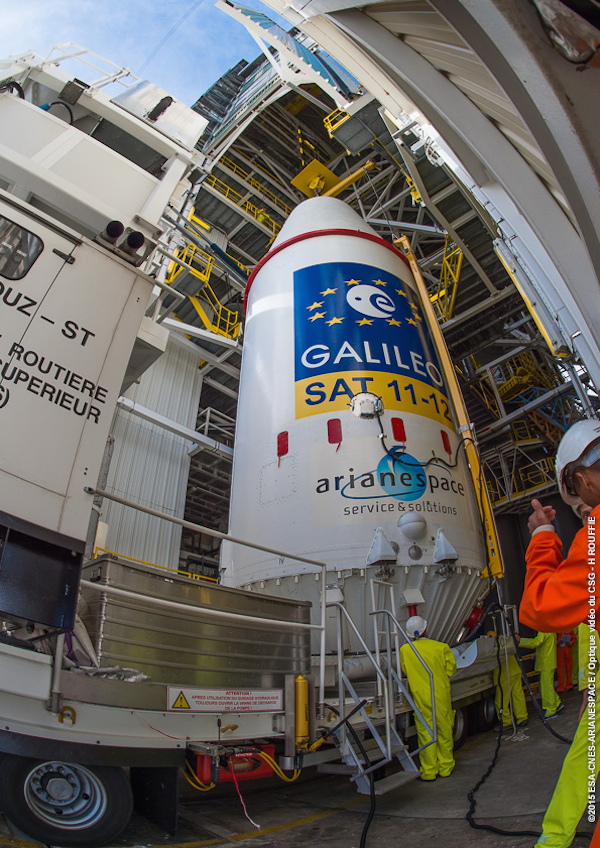
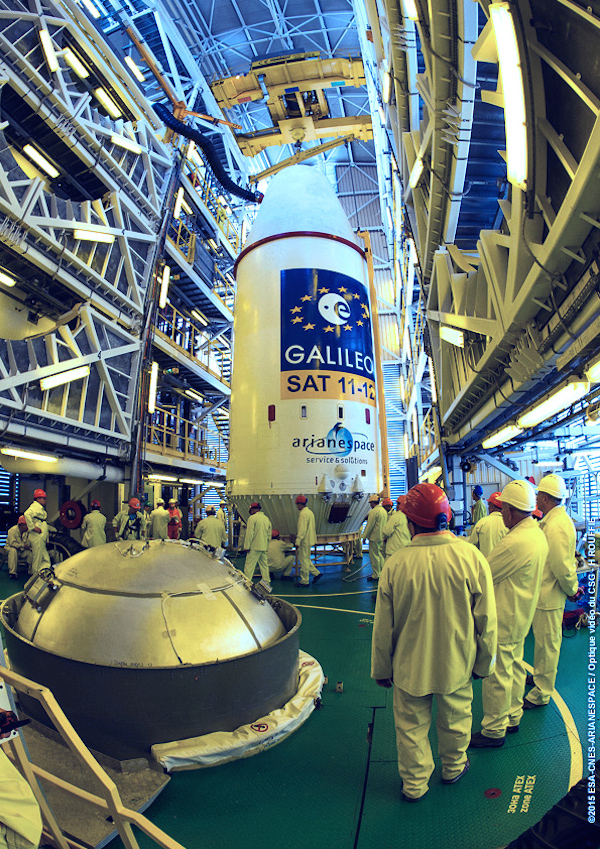
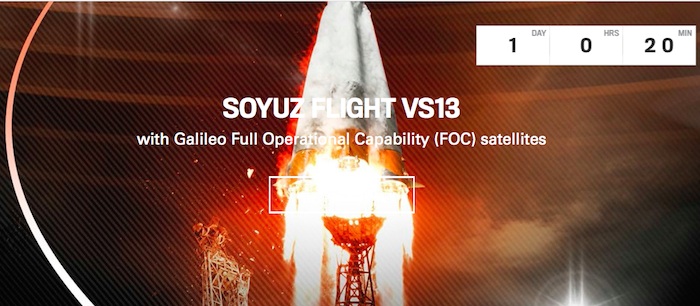
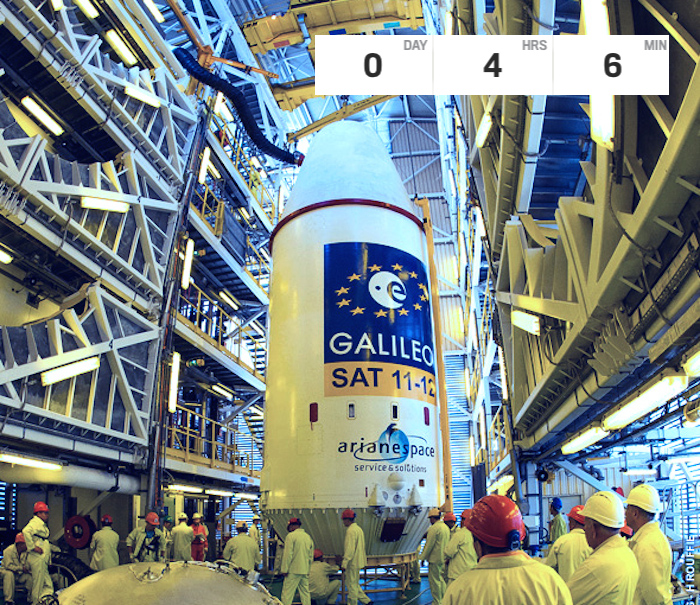
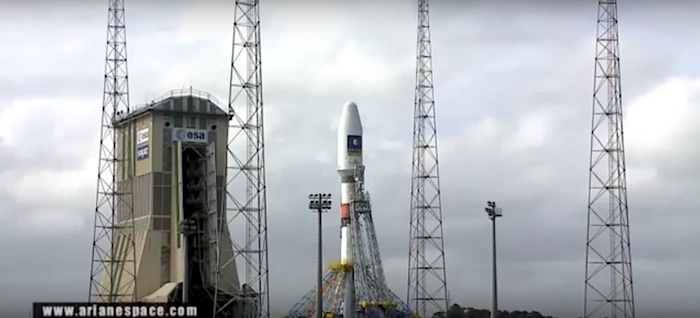
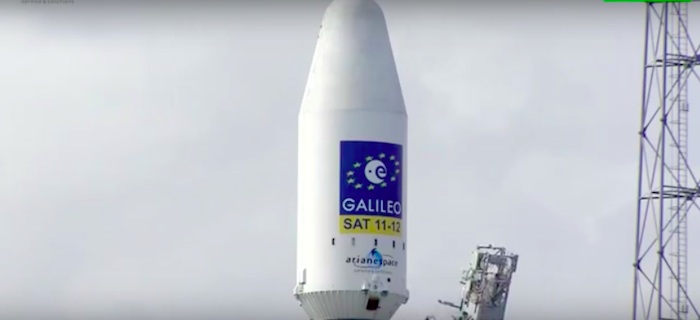
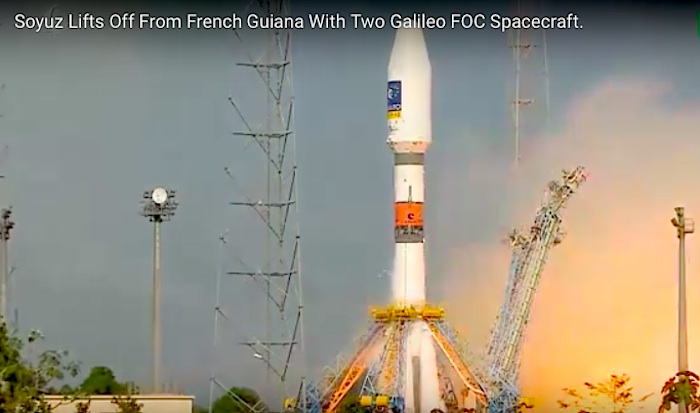
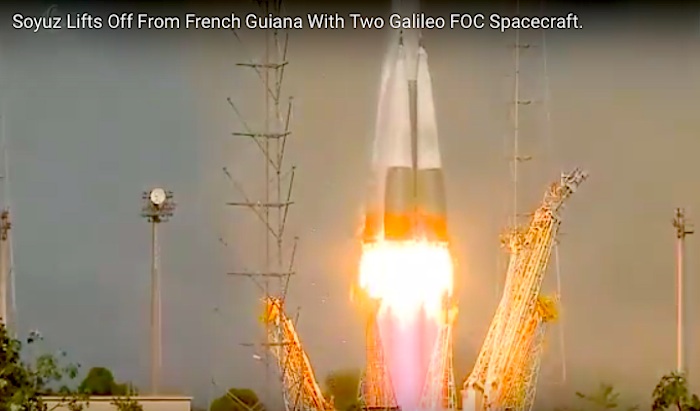
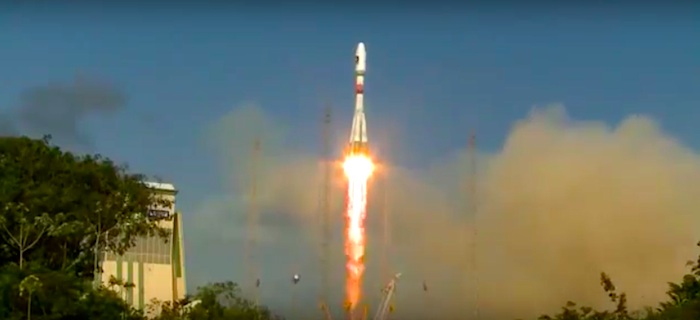
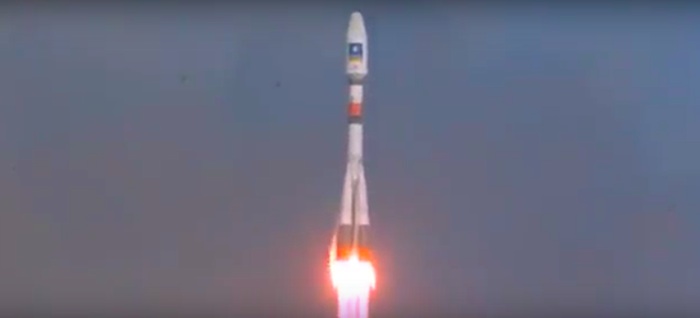
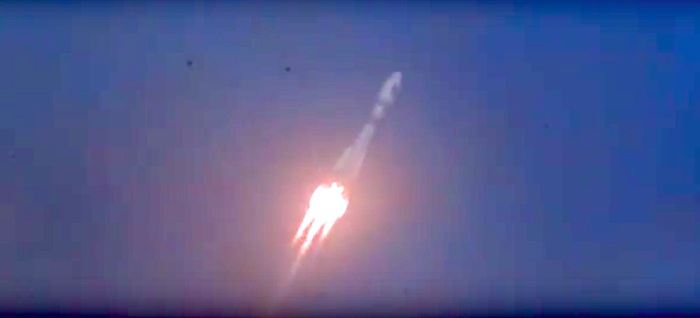
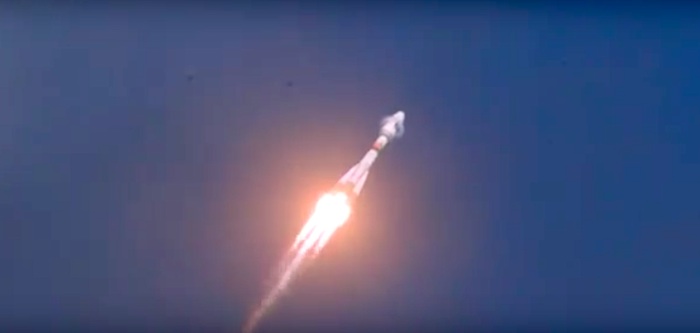
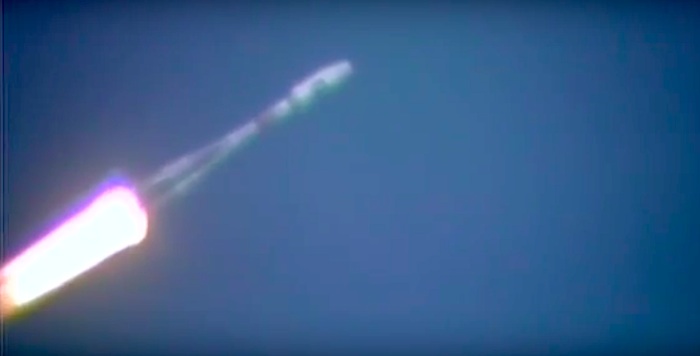
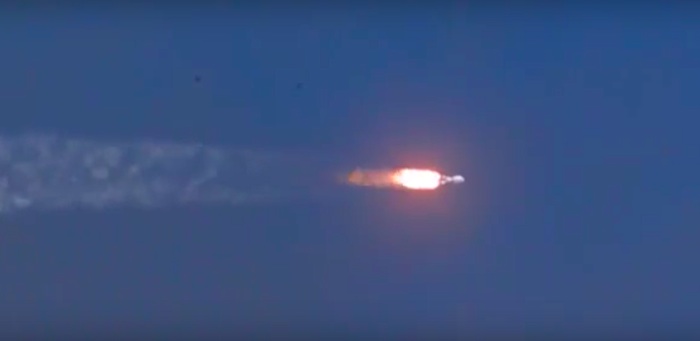
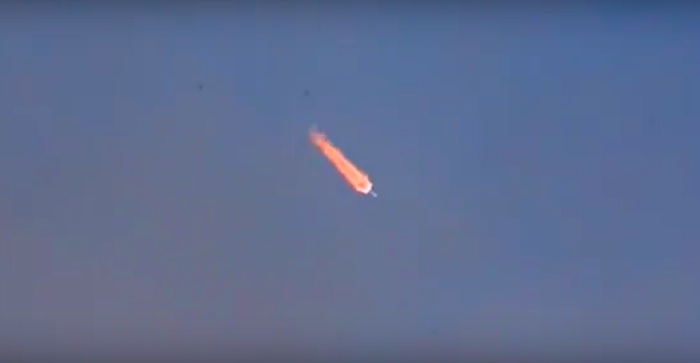
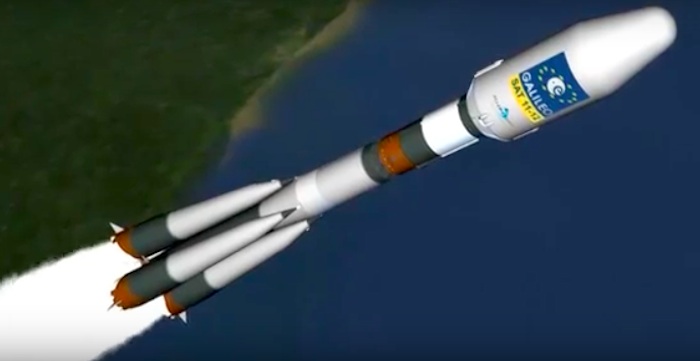
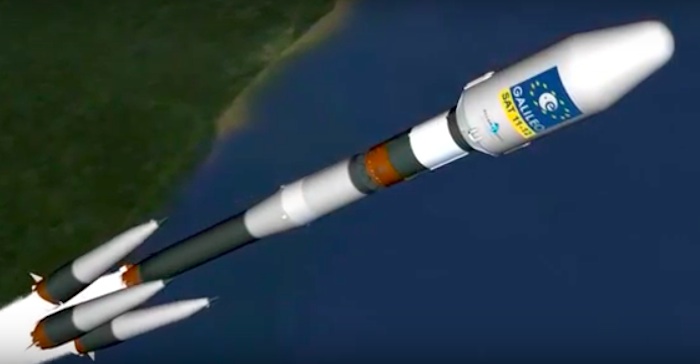
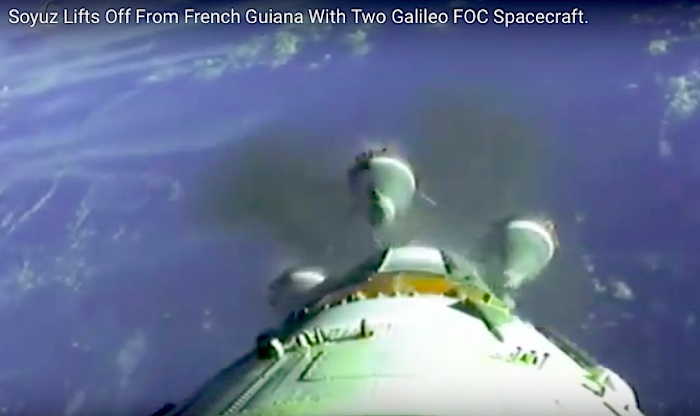
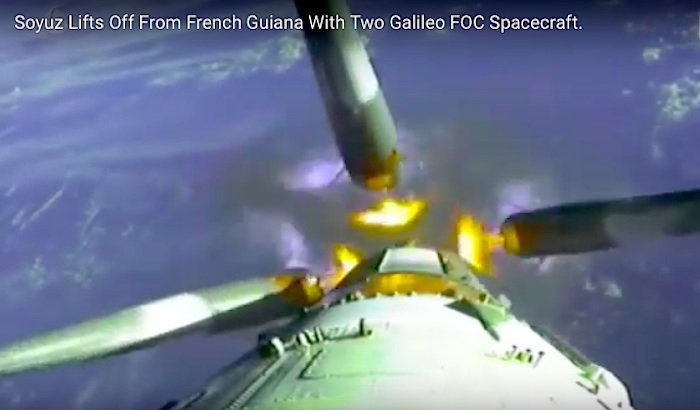
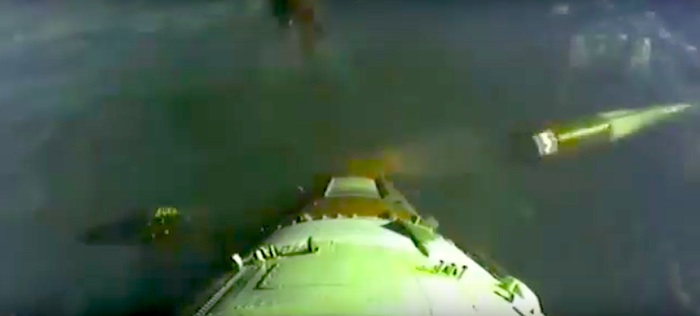
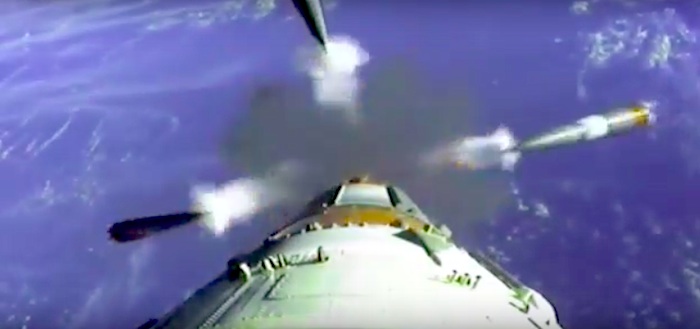
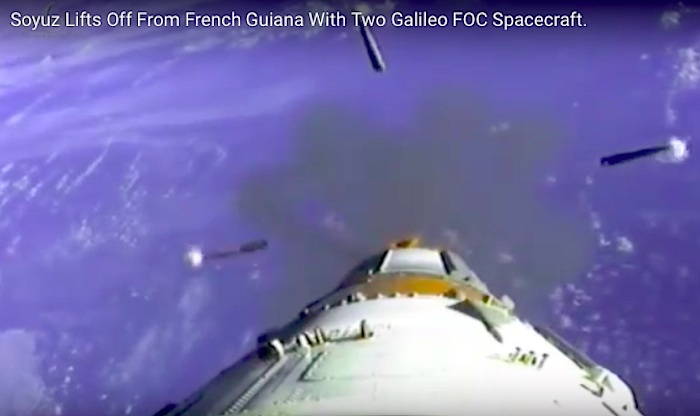
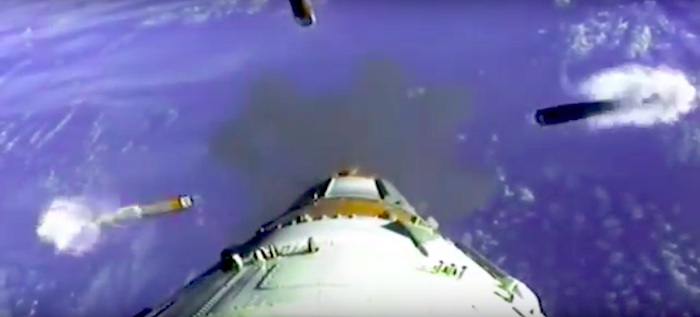
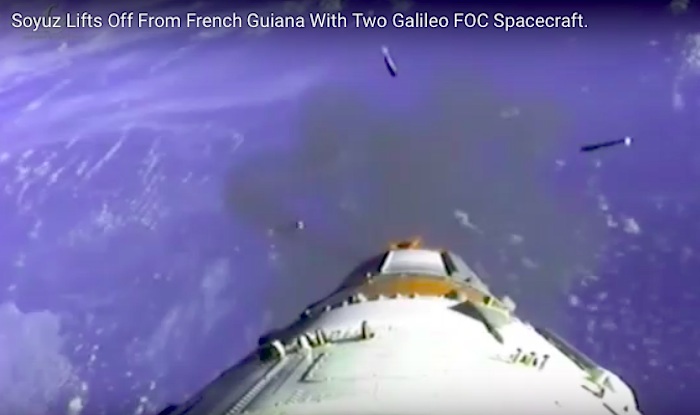
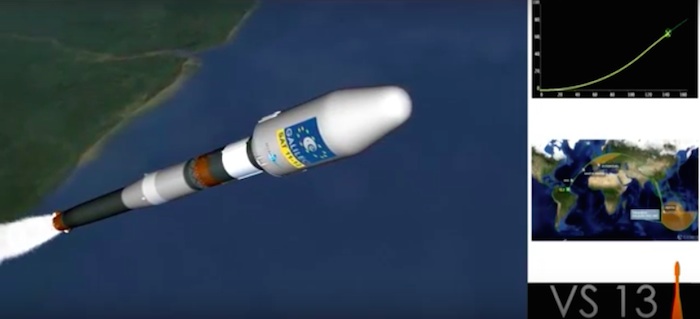
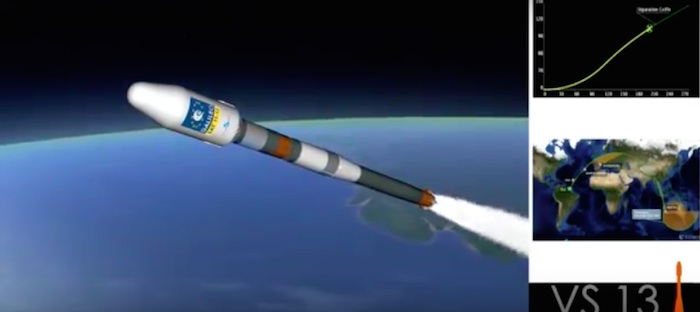
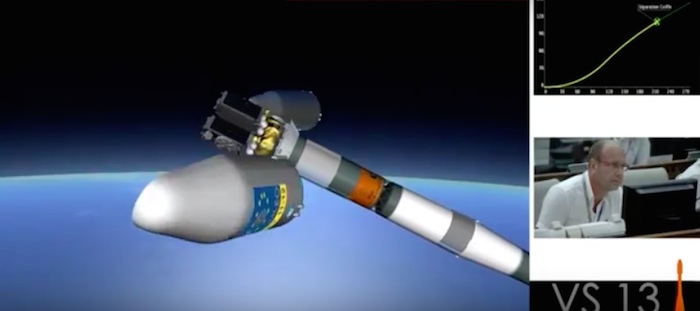
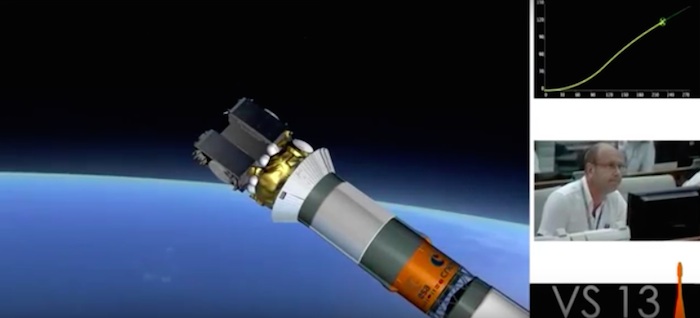
These spacecraft landed at Cayenne’s Félix Eboué Airport aboard a chartered freighter jetliner, and were transferred via road to the Spaceport’s S1 payload preparation facility for checkout.
Scheduled for mid-December, the upcoming medium-lift Soyuz mission with its pair of Galileo satellites will conclude Arianespace’s busiest launch activity year ever involving all three members of its launcher family – which also includes the heavy-lift Ariane 5 and lightweight Vega.
The December Soyuz launch is designated Flight VS13, signifying the medium-lift workhorse’s 13th mission from French Guiana since its service entry at the Spaceport in October 2011. To support the growing Galileo constellation, Soyuz is fitted with a vertical dispenser that accommodates the two navigation satellites deployed on each mission.
The European Commission manages and funds Galileo’s current FOC (Full Operational Capability) phase, with the European Space Agency delegated as the design and procurement agent on the Commission’s behalf.
Quelle: arianespace
.
Update: 8.12.2015
.

.






Quelle: ESA
-
Update: 11.12.2015
.
The Next Two Galileo Satellites Get Their “Boost” For Arianespace’s Upcoming Soyuz Launch

Installed side-by-side on their specially-designed dispenser system, the Galileo FOC satellites are moved into position, then integrated atop Soyuz’ Fregat upper stage in this photo sequence.
-
Europe’s latest two Galileo navigation satellites have been mated with the Soyuz launcher’s Fregat upper stage, marking another milestone in preparations for Arianespace’s December 17 liftoff from French Guiana.
Installation of the two satellites and their dispenser system atop Fregat occurred in the Spaceport’s S3B clean room facility, clearing the way for the integrated unit to be encapsulated in Soyuz’ ST payload fairing. This will create the “upper composite,” which is to be placed atop Soyuz once the vehicle has been rolled out to its ELS launch complex in the commune of Sinnamary.
Fregat operates as Soyuz’ fourth stage, providing an autonomous and flexible propulsion system. Built by Russia’s NPO Lavochkin, it will perform two propulsion burns during the Galileo mission – with the upper stage designed to be restarted up to 20 times in flight.
Arianespace’s upcoming Soyuz mission, designated Flight VS13 in the company’s launcher family numbering system, will orbit the 11th and 12th Galileo satellites, augmenting Europe’s constellation of navigation spacecraft that operate in circular Medium Earth Orbit. Prime contractor OHB System in Bremen, Germany produced the satellites, and their onboard payloads are supplied by UK-based Surrey Satellite Technology Limited (SSTL).
Europe’s Galileo system was conceived to provide high-quality positioning, navigation and timing services under civilian control. Its Full Operational Capability phase is managed and funded by the European Commission, with the European Space Agency (ESA) delegated as the design and procurement agent on the Commission’s behalf.
Flight VS13 will be Soyuz’ 13th liftoff from the Spaceport since its introduction in 2011, and is to close out a busy year for Arianespace – during which the launch services company already has conducted 11 missions with its Soyuz, Vega and Ariane 5 vehicles from French Guiana.
Quelle: arianespace
-
Update: 13.12.2015
.

Quelle: arianespace
.
Update: 16.12.2015
.
Soyuz “upper composite” integrated atop launcher. Flight VS13. Galileo FOC satellites. December 2015




ARIANESPACE FLIGHT VS13
Galileo FOC-M4, SAT 11-14
THE LAUNCH READINESS REVIEW (RAL) took place in Kourou on Wednesday, December 16, 2015 and authorized count-down operations for the Galileo FOC M4, SAT 11-14 launch.
For its 12th flight of the year, and the 13th Soyuz launch overall from the Guiana Space Center (CSG), Arianespace will orbit another pair of satellites for the Galileo constellation. This mission, conducted for the European Commission under a contract with the European Space Agency (ESA), will orbit Galileo FOC (Full Operational Capability) satellites 11 and 12.
After this flight, 12 Galileo satellites will have been deployed by Arianespace, which is proud to be serving Europe as launch service provider for this its independent access to space.
THE SOYUZ LAUNCHER LIFT OFF for this flight is scheduled during the morning of December 17th, 2015, at exactly:
• 08:51:56 a.m., (local time in French Guiana)
• 06:51:56 a.m., (in Washington, D.C.)
• 11:51:56 a.m., (UTC)
• 12:51:56 p.m., (in Paris)
• 14:51:56 p.m., (in Moscow)
Quelle: arianespace
.
Update: 17.12.2015 / 8.45 MEZ
.

Quelle: arianespace
...
Update: 18.30 MEZ
.
Erfolgreicher Start von Soyuz VS13
.
























Quelle: arianespace
4707 Views
